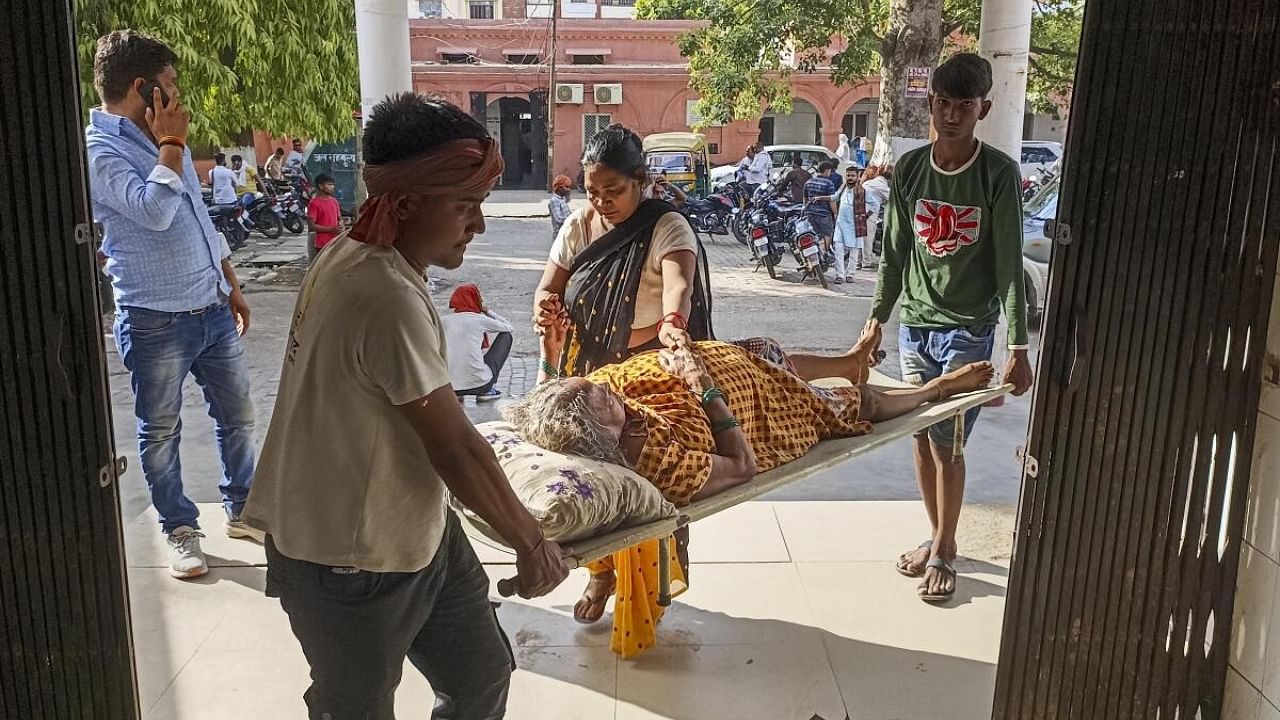
By Rajesh Kumar Singh and Pratik Parija
Nearly 100 people in eastern India have died since late last week as a result of higher-than-normal temperatures, the Associated Press reported.
The district medical officer in Uttar Pradesh reported 54 people from the town of Ballia died in the past three days, as temperatures hovered between 43-44C (109-111F), according to reports in the Indian Express. Forty-two people died in the neighboring state of Bihar.
State authorities in Uttar Pradesh said there’s no “solid evidence” that the deaths there were linked to the heatwave and have set up a panel to investigate. The medical officer has been removed from his position, according to the Express.
Measuring the health impact of extreme heat is difficult in India. Official sources of data are often in conflict, which experts say makes it hard to call attention to the dangers of high heat and humidity.
For example, according to the government’s National Crime Records Bureau, there were 530 deaths linked to heatstroke in 2020. The National Disaster Management Authority counted just four heat-related deaths that same year.
The Crime Records Bureau counted 374 heat-related deaths in 2021.
The effects of climate change, including more severe heatwaves, are increasingly potent in India. The country endures more regular floods and cyclones, which jeopardizes energy and food supplies and worsens the public health consequences.
Sweltering conditions are likely to continue on the east coast and in parts of central India through the beginning of the week, according to the India Meteorological Department. Sambalpur, in Odisha, registered the country’s highest temperature on Sunday, at 46C.